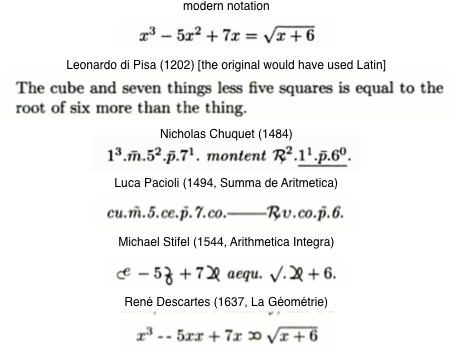I would like to see a simple example which shows how mathematical notation were evolve in time and space.
Say, consider the formula $$(x+2)^2=x^2+4{\cdot}x+4.$$ If I understand correctly, Franciscus Vieta would write something like this. (Feel free to correct me.)
$\overline{N+2}$ quadr. æqualia $Q+N\,4+4$.
($N$ stays for unknown and $Q$ for its square.)
Can you give me the other examples?

